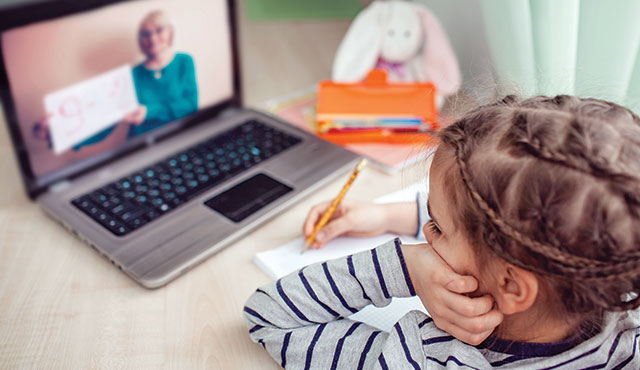With the fall semester upon us, many Catholic parents wonder how they can assure their children’s academic success – and what they can do to best support beleaguered teachers.
“It’s a very challenging time, with so many different messages being sent from different sources,” acknowledges Mike Schabert, associate superintendent for marketing and enrollment for the Diocese of Orange Catholic Schools.
“What it comes down to is that parents are the primary educators for their children,” Schabert continues. “The hallmark of Catholic education is that we recognize the importance of parental involvement, thus we have options to creatively meet children’s educational needs.”
For students to move toward normalcy, Schabert notes, they require a sense of stability and a faith-filled environment, both of which are emphasized in OC Catholic schools.
“We’re concerned about the social and emotional health of our students in addition to their studies,” agrees Denise Valadez, the OC Catholic schools’ associate superintendent of curriculum, spirituality, and accreditation. “They are suffering through this time and in the fall, they will carry this trauma with them.
“Our schools are small enough so that our teachers know each child’s story,” she says, “which helps meet a key challenge for parents and children at a time when things are out of whack.”
OC Catholic schools are poised to offer in-person classes should their waiver be approved by the California state government, but hybrid programs of live and streamed classes and fully online programs are available as well.
“Our schools and principals are doing a lot of preparation to get up and running as we plan for any contingency,” Valadez declares.
To ensure their children are best prepared to learn, Schabert says, it’s important for parents to be mindful of the challenges they are facing and to be flexible about study time, homework, and assignments.
“First and foremost, we need open communication between parents and children, and between parents and teachers,” Valadez says. “Principals and schools are making concerted efforts to ensure that parents are sure of what’s happening with their children and providing a sense of transparency on curriculum resources, scheduling, and getting parents what they need to support students at home.”
Successful at-home learning requires space for children to spread out their things and have a sense of privacy while still allowing for parental supervision.
“Parents must be mindful of schedules and routine to give some sense of normalcy to their kids,” she notes. “It’s not healthy for kids to be in front of the computer for six hours, so they need to take breaks, get outside, and move around.”
While local public schools may offer easily accessible online coursework, Valadez says, Catholic schools offer a curriculum featuring academic excellence with an emphasis on daily religion classes and frequent opportunities for prayer and introspection to cultivate and deepen children’s spirituality and faith.
“Our Catholic faith is who we are,” she says. “We’re striving to maintain and strengthen that in a distance-learning world.” Teachers begin each day with prayer and school principals often lead weekly prayers as well.
Recognizing that students, parents, and teachers are striving for success together is critical, Schabert says.
“We recognize the challenges of being a parent with kids at home and the time and energy parents must invest,” he adds. “Many parents and teachers have double challenges with working full-time and trying to educate their children.”

